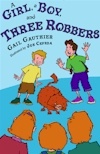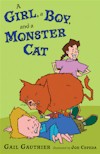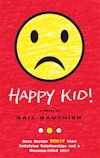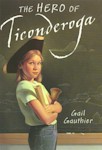Baloney Vs. Bologna: An Editing Dilemma
Bologna, the sausage, appears in the second Girl/Boy book. I wanted to call it baloney because I don't know anyone, myself, who pronounces it bologna, and this is a book for first through third graders. I didn't know if they'd even be familiar with the word "bologna." I don't know many adults among my acquaintances who would know how to pronounce that word if they saw it in print. Though that may just be the company I keep.
Well, I looked up baloney in a couple of dictionaries. Both of them described it as a variant of bologna. Good enough, I thought. I should be able to use it.
When the book came back from copy editing, my favorite copy editor had replaced baloney with bologna. So when I responded to the copy editing changes, I asked if there was a compelling reason why we couldn't stick with baloney. It wasn't a make or break issue for me, by any means, but I wondered if it wasn't a case of being realistic vs. being excruciatingly correct. Given a choice, I'll always go with being realistic.
Between the time I sent off my responses and the time I talked with my editor, I read Melvin Beederman Superhero, Terror in Tights. Bologna, the sausage, figures prominently in that story, and the word appears as bologna, not baloney. This gave me pause, since the Beederman books are written for the same age group as the Girl/Boy books.
So my editor and I discussed this over the phone this past week. By that point, I was no longer confident that I wanted to stick with baloney, but I still wanted to run it past everyone. My main editor (think conceptual/content editor) got together with my copy editor (think grammar and usage editor), who felt quite strongly that bologna is the sausage and baloney is foolishness.
My concept editors and I have always had a policy of deferring to the copy editor on lines, words, punctuation, etc. Given that she wanted to go with bologna and Melvin Beederman went with bologna, I am now going with bologna. And I'm very satisfied with that decision.
It took three of us to resolve this dilemma, and it only related to one word. This is why I like editing and editors. I don't want the burden of making these decisions by myself.
Labels: A Girl a Boy and Three Robbers, editing







